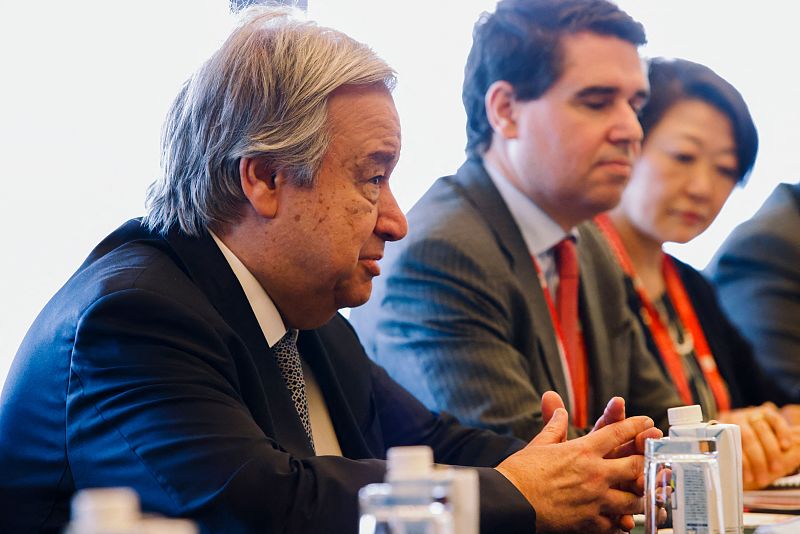
UN Secretary General Antonio Guterres (L) holds a meeting with Japan’s Prime Minister Fumio Kishida on the sideline of the G7 summit, Hiroshima,Japan, May 21, 2023. /CFP
UN Secretary General Antonio Guterres (L) holds a meeting with Japan’s Prime Minister Fumio Kishida on the sideline of the G7 summit, Hiroshima,Japan, May 21, 2023. /CFP
UN Secretary-General Antonio Guterres said on Sunday that it was time to reform both the Security Council and Bretton Woods to align with the “realities of today’s world”.
Speaking at a press conference in Hiroshima, Japan, where the Group of Seven (G7) summit had been held, Guterres said both institutions reflected the power relations of 1945 and needed to be updated.
“The global financial architecture became outdated, dysfunctional and unfair,” he said, adding in the face of the economic shocks from the COVID-19 pandemic and the Russia-Ukraine conflicts, it “has failed to fulfill its core function as a global safety net.”
Elaborating on the “systemic and unjust bias” in the global economic and financial system, Guterres noted that reforming the Bretton Woods institutions is essentially a question of “redistributing power in line with the realities of today’s world” as within the current rules, developing economies had been let down and sold short.
Guterres added at the G7 summit that there was a growing consciousness among developing countries that not enough was being done to reform outdated institutions or “remove the frustrations” of the Global South.
According to the International Monetary Fund (IMF), the wealthy G7’s economic clout has shrunk in the past 30 years, accounting for 29.9% of global GDP in 2023 compared to 50.7% in 1980, while China and India together will account for about 50% of world growth in 2023.
The Bretton Woods system is a set of unified rules and policies that provided the framework to create fixed international currency exchange rates. Under it, gold was the basis for the U.S. dollar and other currencies were pegged to the U.S. dollar’s value. The system came to an end in the early 1970s when the U.S. announced that it would no longer exchange gold for U.S. currency. While the system was dissolved, both the IMF and World Bank it created have remained pillars for the exchange of international currencies.
(With input from Reuters)